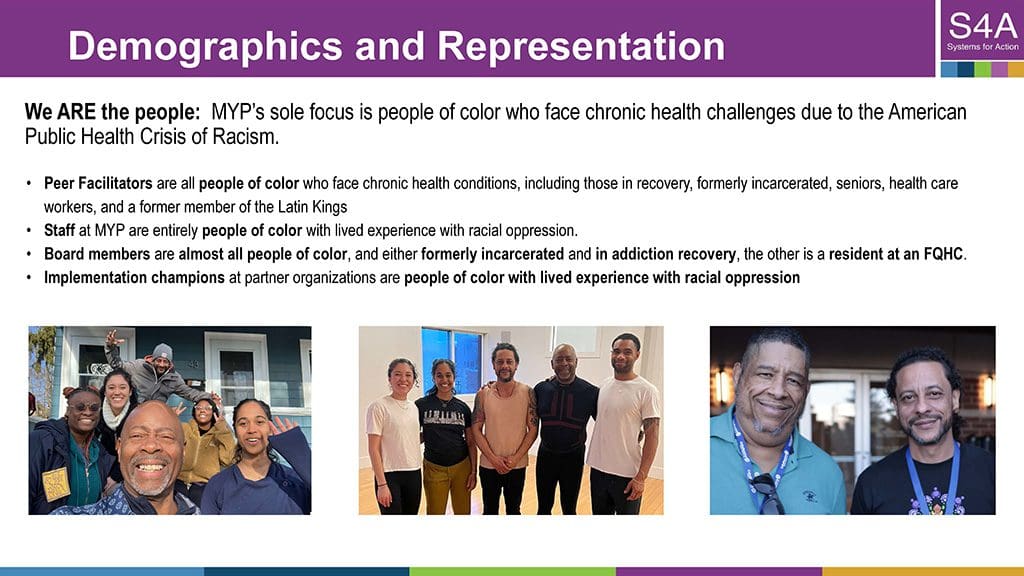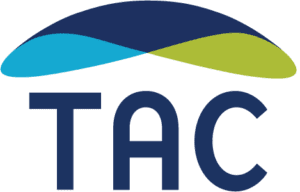Welcome!
Please enjoy our fall newsletter from the Systems Alignment Innovation Hub, operated by the Technical Assistance Collaborative’s Racial Equity Action Lab and supported by the Robert Wood Johnson Foundation’s (RWJF) national Systems for Action Research Program. Read on for the latest news from our Community Power Network, Free Technical Assistance & Consultation Services, Targeted Research Funding, and Tools, Guides, & Resources projects.
As we approach the end of SAIH’s second year, we want to recognize the many partners who have supported us in helping community-based organizations in Black, Brown, and Indigenous (BBI) communities in their work with the medical, social service, and public health sectors to dismantle inequities and improve health and well-being for all. We thank our colleagues at the Human Services Research Institute for their partnership in supporting the development of our tools, guides, and resources and for serving as coaches to SAIH grantees. We appreciate Lori Pampilo Harris with Wayfinders Consulting for helping to decolonize our work and bringing expertise on Indigenous ways of knowing. We also thank Change Matrix, the evaluation partner supporting our continuous quality improvement efforts so that we can strengthen our partnerships with communities in our work to undo systemic racism. And finally, we want to express our gratitude to Systems for Action (S4A) and the Robert Wood Johnson Foundation for their investment of time, money, and commitment to the achievement of health equity which has made SAIH possible.
Targeted Research Funding
Communities Leading Systems Alignment Research was a special two-part webinar event offered by Systems for Action as part of its Research in Practice series last month. The webinar’s presenters shared insights and updates from the four current SAIH grantee organizations: Mandela Yoga Project Inc, Community ConneXor, United Indians of All Tribes Foundation, and the Washington State Lived Experience Coalition. Learn about the presenters, follow links to the recorded webinars, and download the webinar slide decks:
- Communities Leading Systems Alignment Research: Part I (featuring Community ConneXor & Mandela Yoga Project Inc)
- Communities Leading Systems Alignment Research: Part II (featuring United Indians of All Tribes Foundation & Washington State Lived Experience Coalition)

A slide from Communities Leading Systems Alignment Research: Part I
The Community Power Network
The Community Power Network is an ongoing multicultural, multiracial forum that explores the potential for systems alignment initiatives to improve outcomes for BBI communities. We build community power to uplift lived experience, Indigenous and cultural wisdom, community values and assets, and culture; to conduct research that decolonizes and reimagines “rigor” in evaluating the feasibility and impact of systems alignment innovations; to leverage transdisciplinary expertise and other ways of knowing; and to move evidence into action.
The Community Power Network centers BBI-led community-based organizations, marginalized people and communities, and organizations with a focus on undoing systemic racism as it intersects with other forms of oppression. Undoing systemic racism takes all of us, and we extend a warm embrace to all researchers, funders, and organizations working to dismantle systemic oppression.
Having just completed its 15th monthly session, the CPN is growing and going strong. Check it out!
Research & Activities
United in Purpose: Faith-Based Organizations Partnering with Academia for Social Impact (September 25, 12 noon ET): Partnerships between academic institutions and faith-based organizations present unique opportunities for research, support, and program implementation. This webinar features team members from the Systems for Action research projects “Multisector Task-Sharing to Improve Mental Health in Harlem, NY”; “Faith-leaders Allied and Aligned to Institute Trust in the Home (FAAITH); and “Healthy Outcomes from Positive Experiences (HOPE) for Equitable Systems Alignment.”
Challenging the Status Quo: Shifting Power in Research Partnerships (October 2, 12 noon ET): When community collaboration is embedded throughout the research process, findings are more relevant and better positioned to inform changes that directly address community needs. This Robert Wood Johnson Foundation ‘For Action’ panel will feature unique research collaborations.
Resource Corner
Funding Opportunities
Evidence for Action: Innovative Research to Advance Racial Equity (Proposals due November 1, 2024): This funding is geared toward studies about “upstream” causes of health inequities, such as the systems, structures, laws, policies, norms, and practices that determine the distribution of resources and opportunities, which in turn influence individuals’ options and behaviors. Research should center on the needs and experiences of communities exhibiting the greatest health burdens and be motivated by real-world priorities.
Pioneering Ideas: Exploring the Future to Build a Culture of Health (Open application deadline): This funding opportunity seeks proposals primed to impact health equity moving forward. We are interested these four areas of focus: Future of Evidence; Future of Social Interaction; Future of Food; Future of Work. Additionally, we welcome ideas that fall outside of these focus areas but offer unique approaches to advancing health equity.
Robert Wood Johnson Foundation Health Policy Fellows Program (Applications due November 5, 2024): This program provides the nation’s most comprehensive learning experience at the nexus of health, science, and policy in Washington D.C.
Understanding the Intersection of Social Inequities to Optimize Health and Reduce Health Disparities: The Axes Initiative (Applications due March 10, 2025): The Axes Initiative will support research to understand health at the intersections of social statuses such as race, ethnicity, socioeconomic status, sexual orientation, and ability, by examining contributions of social and other determinants of health.
The Systems Alignment Innovation Hub (SAIH) helps medical, social service, and public health providers in low-income and BIPOC communities to dismantle inequities and improve health and well-being for all. SAIH is operated by the Technical Assistance Collaborative’s Racial Equity Action Lab and is supported by the Robert Wood Johnson Foundation’s national Systems for Action Research Program.


